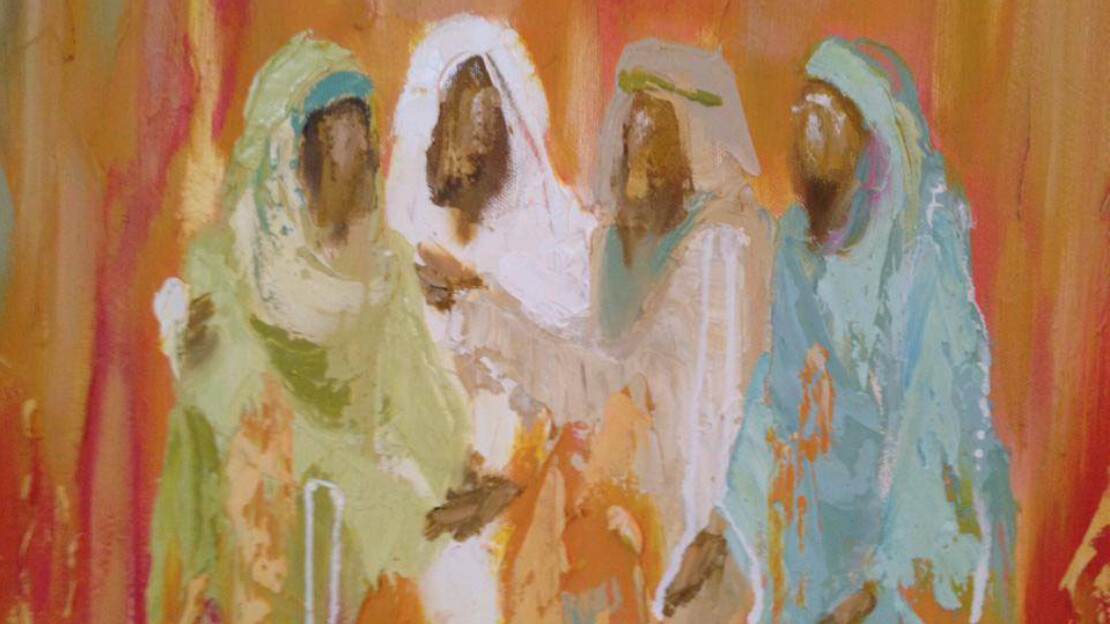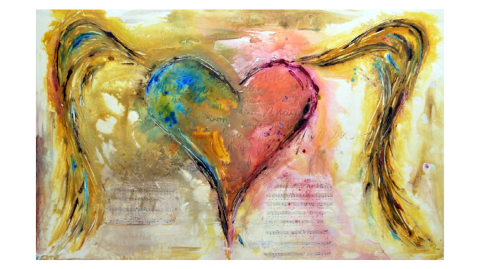O Nebuchadnezar, we have no need to present a defense to you in this matter. If our God whom we serve is able to deliver us from the furnace of the blazing fire and out of your hand, O king, let him deliver us.
--Daniel 3:17
I never thought to ask before, but these days I am wondering just how long Shadrach, Meshach, and Abednego were expected to walk circles around the bottom of that furnace before something changed for the better. What was it like to be confined there by their own convictions—that is, until the pompous, paranoid, raging King Nebuchadnezar called them out?
The miracle is that they survived; but how long did they have to ‘take the heat’ of such extreme conditions? This classic story of perseverance amidst persecution is told with such efficiency that it is hard to know for sure. I am also intrigued by the way that the King himself appears so anxious about moving on; even more so than those who were suffering the actual consequences of his decision making.
In our present circumstances, the very idea that these three would have willingly stayed bound any longer than absolutely necessary seems rather absurd. Daniel does not bother to tell us how they were feeling about the situation, but that does not keep us as contemporary readers from filling in the blank ourselves. “Get us out of here!” we say. “I can’t take it anymore! Something’s got to give!”
Clearly, our microwave mentality is not prepared for the kind of fortitude that is required by the furnace. Even now, as our communities wrestle with the question of when and how to reengage the world in faithful ways, the challenge for the Church is to bear witness to the radical ideas that 1) our deliverance is not our own doing and 2) that waiting on God is not the same as wishful thinking. Furthermore, we are invited to remember the stories of those whose devotion and fidelity led them simply to “be still and know.”
Within this rich tradition, I am regularly stunned by the wisdom of the 4th century Desert Fathers. While we’re running around singing “should I stay or should I go now…if I go there could be trouble, and if I stay it will be double” (my regards to The Clash), these saints are still chanting a very different tune. I mention this, only because I find the contrast of these words to our current culture as hilarious as they are potentially applicable.
For instance,
A brother asked a hermit, ‘What am I to do? My thoughts will not let me sit alone in my cell even for an hour.’ He said, ‘My son go back and stay in your cell, wash your hands, pray to God continually, turn your thoughts toward God: and let no one persuade you to go out of your cell’ (Sayings of the Desert Fathers, 7.24).
And for every bishop, pastor or other church member who is stressed by our inability to worship as usual,
…the devil said…I tell you, brother, we do no good alone sitting in our cells. We cannot receive the body and blood of Christ, and I am afraid he will cast us away if we separate ourselves from that sacrament. But listen, brother, three miles from here is a monastery that has a priest. Let us go there every Sunday, or every other Sunday, and receive the body and blood of Christ, and then return to our cells. The brother was persuaded by the devil’s suggestion (Sayings, 7.24).
And for every grandparent, parent, teacher, caregiver, teenager or child who is convinced that they are missing something—that there is something else they could or should be doing right now in the name of love (or entertainment),
A hermit was asked by a brother why, when he stayed in his cell, he suffered boredom. He answered, ‘You have not yet seen the resurrection for which we hope, nor the torment of fire. If you had seen these, then you would bear your cell without boredom even if it was filled with worms and you were standing in them up to your neck’ (Sayings, 7.28).
Dear Sisters and Brothers, I will spare you my immediate interpretation of these sayings, but as others have commented on the early abbas and ammas: their best “advice” might be their form: if you want to follow Jesus more rigorously, ask for a word from one more advanced in holiness (Byasse, 2007).
In our case—yearning to break out, yet praying and wondering what to do next—I believe it is as Abba Moses said: “Go, sit in your cell, and your cell will teach you everything.”
Lord knows we have a lot to learn. Yes, it may take time, but you and I are not alone in our pursuit of this life. Even the so-called ‘authorities’ can see that.
Was it not three who were bound? But I see four…and the fourth has the appearance of a god (3:25).
Come, Lord Jesus! Keep us in good company!
May your Spirit, O God, guide us today and always. AMEN.
Whatever it Takes,
Darren
image of shadrach, meshach & abednego painting by abigail myrick




